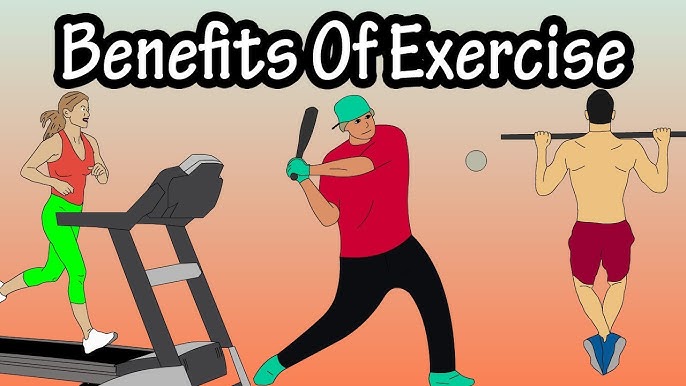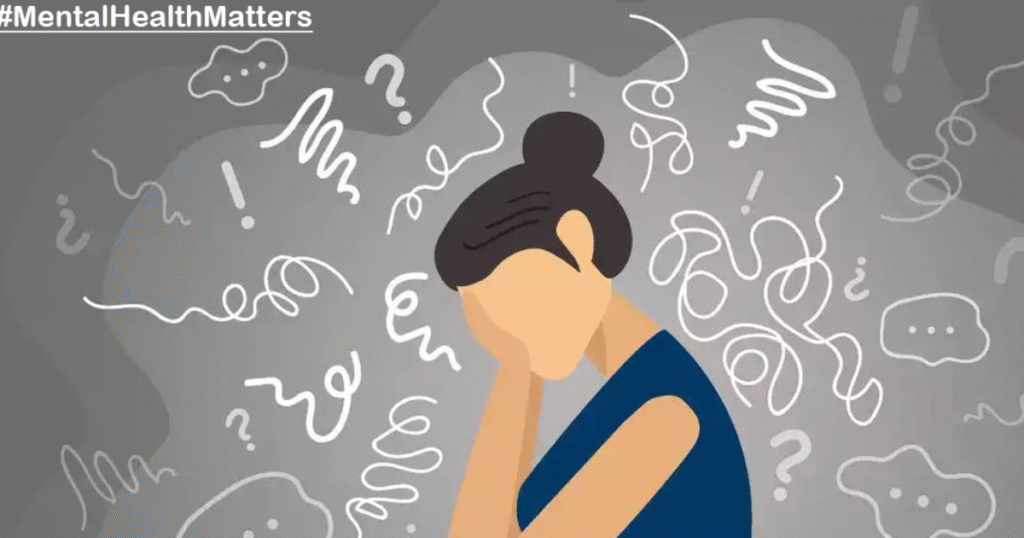Regular exercise is one of the most effective ways to improve overall health and quality of life. Whether you’re aiming for weight management, better mental clarity, or disease prevention, exercise plays a vital role in keeping your body and mind functioning optimally. This article explores the numerous benefits of exercise on physical, mental, and emotional health and how incorporating it into your daily routine can contribute to long-term wellness.
Physical Health Benefits of Regular Exercise

Exercise is not just about looking good; it’s about feeling good and improving your body’s ability to perform everyday tasks. From reducing the risk of chronic diseases to enhancing your cardiovascular health, physical activity plays a crucial role in maintaining your health.
1. Boosts Cardiovascular Health
Regular exercise strengthens the heart, improving its efficiency. Engaging in cardiovascular exercises like running, cycling, or swimming helps improve blood circulation, lower blood pressure, and increase the heart’s pumping efficiency. Over time, this reduces the risk of heart disease, stroke, and hypertension.
- Increased heart capacity: Exercise enhances the heart’s ability to pump blood and oxygen throughout the body, promoting better circulation.
- Lower cholesterol: Regular exercise can help reduce LDL (bad) cholesterol and increase HDL (good) cholesterol.
- Improved circulation: With better circulation, oxygen and nutrients are delivered more efficiently to muscles and organs.
2. Strengthens Muscles and Bones
Exercise plays a key role in strengthening both muscles and bones. Weight-bearing exercises, such as walking, running, or weightlifting, can increase bone density and help prevent osteoporosis, especially as you age.
- Increased muscle mass: Strength training exercises help build lean muscle mass, which improves body composition and metabolism.
- Stronger bones: Weight-bearing activities help improve bone density, lowering the risk of fractures and bone-related diseases.
3. Aids in Weight Management
Exercise is one of the most effective ways to manage body weight. Whether through cardio, strength training, or high-intensity interval training (HIIT), regular physical activity helps burn calories and build muscle mass, contributing to a healthier weight.
- Calorie burn: Regular exercise increases the number of calories burned, contributing to weight loss and preventing weight gain.
- Improved metabolism: Strength training builds muscle mass, which increases the body’s basal metabolic rate (BMR), leading to more efficient calorie burning.
4. Improves Flexibility and Balance
As you age, maintaining flexibility and balance becomes increasingly important to prevent falls and injuries. Regular exercise, such as yoga or Pilates, enhances flexibility and improves the coordination of your body’s movements.
- Improved posture: Exercises that focus on core strength help improve posture and prevent musculoskeletal discomfort.
- Better balance: Balance exercises, such as tai chi or certain yoga poses, improve coordination and prevent falls, particularly in older adults.
Mental Health Benefits of Regular Exercise
In addition to physical health, exercise has a profound impact on mental well-being. Regular physical activity triggers the release of chemicals in the brain, known as endorphins, that help improve mood and reduce feelings of anxiety or depression.
1. Reduces Symptoms of Anxiety and Depression

Exercise is a powerful tool for managing mental health. Studies show that physical activity can reduce symptoms of anxiety, depression, and stress. Engaging in physical activity triggers the release of serotonin and endorphins, which help improve mood and promote relaxation.
- Mood enhancement: Regular exercise boosts endorphin levels, promoting feelings of happiness and relaxation.
- Reduces anxiety: Physical activity reduces the physical symptoms of anxiety, such as increased heart rate, by relaxing the muscles and calming the nervous system.
- Alleviates depression: Exercise can help combat the symptoms of depression by increasing the production of neurotransmitters that regulate mood.
2. Improves Cognitive Function
Exercise is not only beneficial for the body but also for the brain. Regular physical activity improves cognitive function, memory, and mental clarity.
- Memory enhancement: Exercise increases blood flow to the brain, improving its ability to store and retrieve memories.
- Prevents cognitive decline: Regular exercise has been shown to reduce the risk of cognitive decline and neurodegenerative diseases, such as Alzheimer’s disease.
- Boosts creativity: Physical activity stimulates brain function, which enhances creativity and problem-solving skills.
3. Reduces Stress and Enhances Relaxation
Engaging in regular exercise helps manage stress by lowering cortisol levels and promoting a sense of calm. Physical activity helps relax tense muscles, release built-up energy, and create a mental break from everyday worries.
- Cortisol reduction: Exercise lowers cortisol, the body’s stress hormone, helping you feel less stressed and more relaxed.
- Improved sleep: Regular physical activity helps regulate sleep patterns, leading to better quality sleep and increased energy levels throughout the day.
Social Benefits of Regular Exercise

Engaging in regular physical activity also has positive social benefits. Whether through group fitness classes, sports, or outdoor activities, exercise provides opportunities for social interaction, which can improve your emotional well-being.
1. Builds Social Connections
Exercise often takes place in group settings, such as fitness classes, team sports, or walking groups. These interactions foster a sense of belonging and community, which can help combat feelings of loneliness and isolation.
- Group activities: Joining exercise groups or classes provides a chance to meet new people and build friendships.
- Team sports: Participating in team sports improves social interaction and teamwork skills, enhancing your social life.
2. Encourages Accountability
When you exercise with others, it creates a sense of accountability, motivating you to stick to your fitness routine. Having a workout buddy or trainer can encourage you to push yourself and stay committed to your health goals.
- Motivation boost: Working out with others helps you stay motivated and makes exercise more enjoyable.
- Commitment: Exercise partners or social fitness groups increase commitment to regular physical activity.
Also Read : The Connection Between Mental Health And Physical Health
Conclusion
Regular exercise is essential for maintaining optimal physical, mental, and emotional health. From improving cardiovascular health to boosting mood and reducing stress, the benefits of exercise are numerous and far-reaching. Incorporating regular physical activity into your daily routine can help prevent chronic diseases, improve mental health, and contribute to a longer, healthier life. Remember, the key to enjoying the benefits of exercise is consistency. Start small, stay motivated, and make fitness a lifelong habit to improve your overall health.
FAQs
1. How much exercise should I do each week?
The general recommendation is at least 150 minutes of moderate-intensity aerobic activity or 75 minutes of vigorous-intensity aerobic activity per week, combined with strength training exercises on two or more days a week.
2. Can exercise help with weight loss?
Yes, regular exercise helps burn calories, build muscle, and improve metabolism, which supports weight loss. Combining exercise with a balanced diet is the most effective approach for losing weight.
3. How does exercise help with stress management?
Exercise helps reduce cortisol levels, relaxes muscles, and promotes the release of endorphins, which help reduce stress and improve overall well-being.
4. What are the best exercises for improving cardiovascular health?
Aerobic exercises such as running, swimming, cycling, and brisk walking are excellent for improving heart health and boosting cardiovascular fitness.
5. Can exercise improve sleep quality?
Yes, regular physical activity promotes better sleep by helping you fall asleep faster, staying asleep longer, and improving the quality of your rest.








